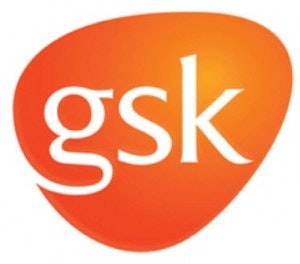A study published in The New England Journal of Medicine testing omega-3 fatty acids — commonly found in fish oil — in patients with risk factors for cardiovascular disease came up with a pretty wishy-washy conclusion. The take-home message from the study: Fish oil given at the dose used in the trial didn’t reduce cardiovascular mortality and morbidity in the population tested.

As I see it, there are three key points that limit the conclusions from the study.
1. Who’s being tested? The large clinical trial enrolled more than 12,500 patients in Italy. How different would the results be for patients in the U.S.? Not only is our genetic makeup potentially different, but so is our diet. If Italians are already getting plenty of omega-3 fatty acids, you might imagine that adding a little extra isn’t likely to do much.
In fact, the group studied was healthier than planned. The primary endpoint of the study was initially cumulative rate of death, nonfatal heart attacks, and nonfatal stroke, but the event rate was lower than expected, so the endpoint was loosened to include admission to the hospital for cardiovascular causes.
2. What’s the dose? Patients were given 1 gram of omega-3 fatty acids or an olive oil placebo. One gram isn’t a whole lot. The recommended dose for GlaxoSmithKline plc (ADR) (NYSE:GSK)‘s prescription-grade fish oil Lovaza is 4 grams. Ditto for Amarin Corporation plc (ADR) (NASDAQ:AMRN)‘s Vascepa. Omthera Pharmaceuticals Inc (NASDAQ:OMTH)‘s has seen good results with a 2-gram dose of its omega-3 drug Omthera Pharmaceuticals Inc (NASDAQ:OMTH), but that appeared to be due to increased absorption because of the way the drug is prepared.
The difference in doses shows in the measurement of triglycerides, which may contribute to hardening of arteries. In the 1-gram trial, triglycerides fell by 28 milligrams per deciliter compared with 57 mg/dL in a trial testing Lovaza in patients with moderately high triglyceride levels.
3. What’s in your pill? The fish oil supplements you buy at the drugstore are a mix of different omega-3 fatty acids, but eicosapentaenoic acid, or EPA, is believed to be the key ingredient that slows triglyceride formation, because the enzymes that make triglycerides don’t use EPA very effectively and has the added benefit of reducing bad LDL cholesterol.
Vascepa is highly purified EPA, which decreased LDL cholesterol levels by a statistically significant 6.2% from baseline versus placebo in the aforementioned trial testing patients with moderately high triglyceride levels. In the 1-gram trial, however, the authors noted that there were no significant differences in LDL cholesterol between the two groups.
Big test in progress
Amarin Corporation plc (ADR) (NASDAQ:AMRN) is testing Vascepa in a heart outcomes trial. The results are likely to dictate whether the drug stays on the market or, at the very least, how well it sells. Changing laboratory tests is nice, but outcomes are what doctors and patients really care about.
It certainly would have been nice to see 1 gram of omega-3 fatty acids lower heart-related issues. If the low dose worked, Vascepa would have been a shoo-in. Of course, it cuts both ways. If 1 gram of omega-3 fatty acids had worked, patients could just buy cheap supplements and wouldn’t need an expensive prescription drug.
As I outlined earlier, I have a hard time arguing that the 1-gram trial proves that Vascepa won’t succeed; the products are just too different.
Vascepa still has an uphill battle, though. The patients in the outcomes trial are taking a statin such as Pfizer Inc. (NYSE:PFE)‘s Lipitor, Merck & Co., Inc. (NYSE:MRK)‘s Zocor, or AstraZeneca plc (ADR) (NYSE:AZN)‘s Crestor, which do a pretty good job of lowering heart complications on their own. It can be hard to measure a further decrease when you add a drug to the mix. That’s what happened to Merck & Co., Inc. (NYSE:MRK)’s Cordaptive, which increased good HDL cholesterol, reduced bad LDL cholesterol, and lowered lipid levels, but failed to show an effect in an outcomes trial.
We’ll have to wait for the clinical trial to read out in a few years before we’ll know whether we can see a less wishy-washy statement about fish oil and cardiovascular health.
The article Some Fish Oil Doesn’t Help Some Patients in Some Countries originally appeared on Fool.com.
Fool contributor Brian Orelli and The Motley Fool have no position in any of the stocks mentioned.
Copyright © 1995 – 2013 The Motley Fool, LLC. All rights reserved. The Motley Fool has a disclosure policy.
